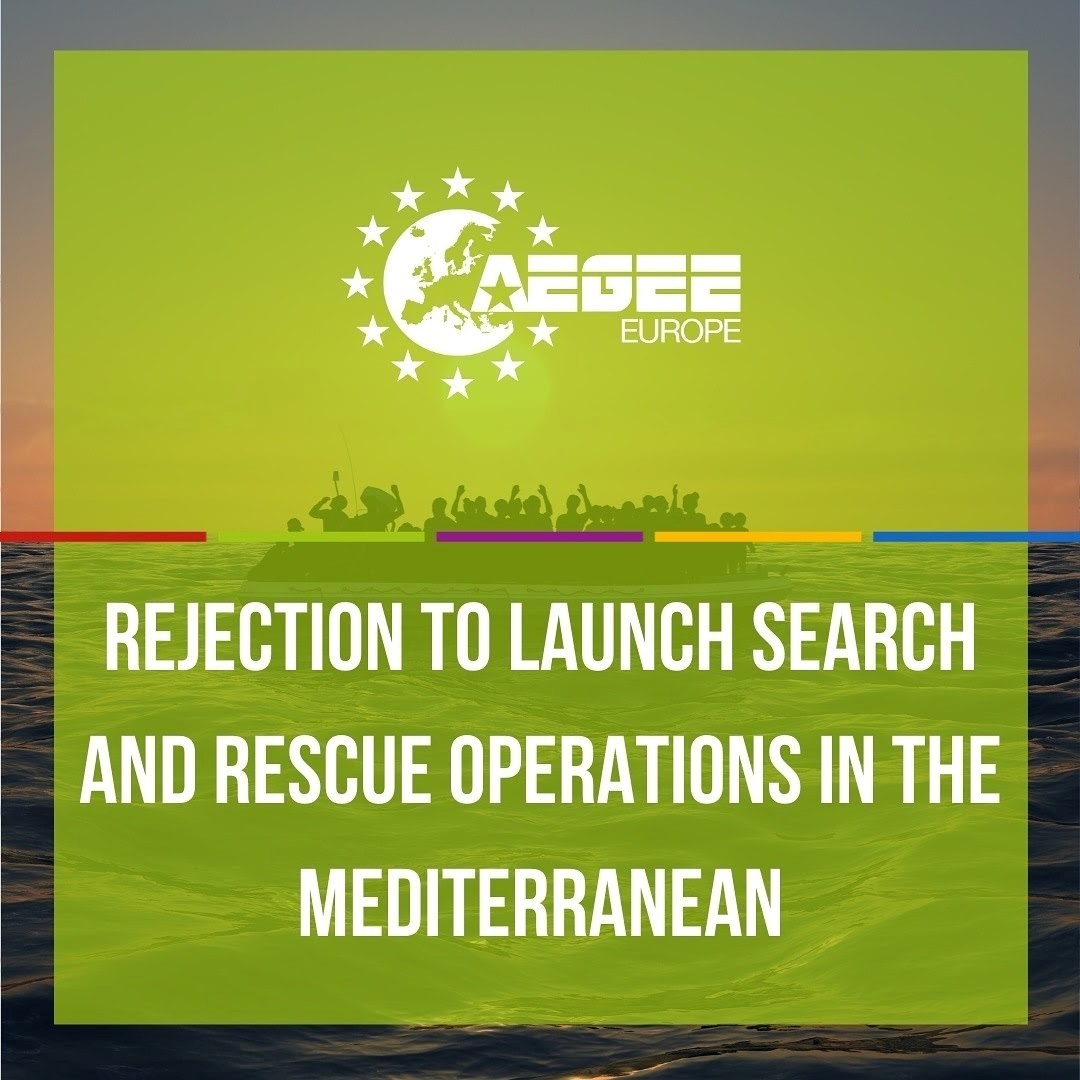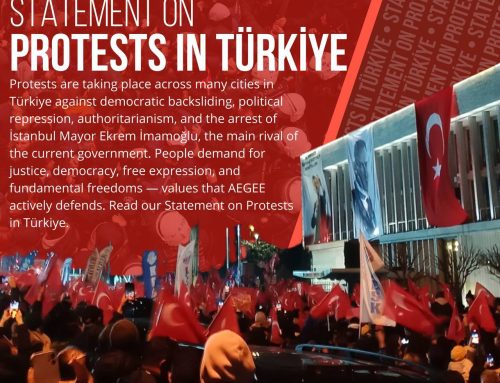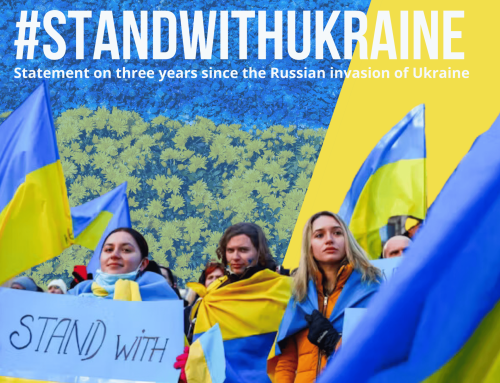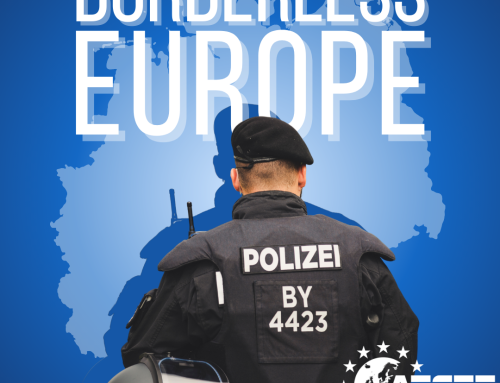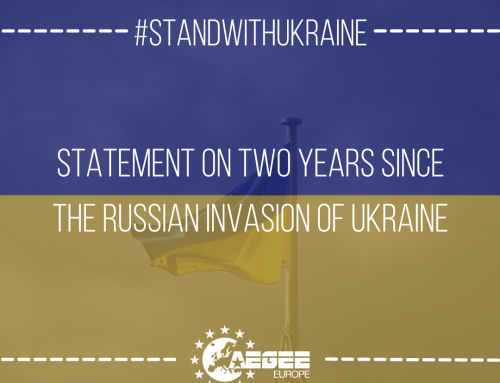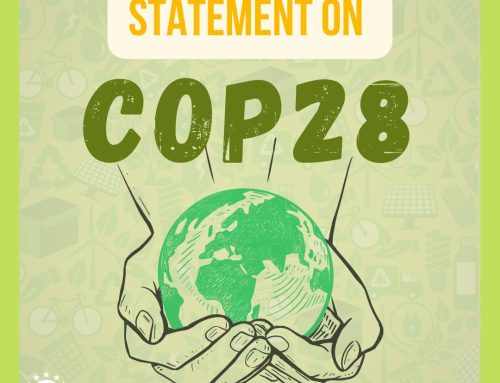On 24th October 2019, the European Parliament rejected a motion to step up search and rescue (SAR) operations in the Mediterranean Sea. The resolution, which was launched by the Socialist and Democrats Group (S&D) with support from the Greens and the European United Left/Nordic Green Left (GUE-NGL), was defeated by only two votes, with the far-right Identity and Democracy Group (ID) and the conservative European People’s Party (EPP) -the largest group in the Parliament- voting it down.
Search and rescue activities are sea operations that render assistance to any vessel or person in distress at sea. According to the European rules for the surveillance of external sea borders, Member States shall ensure that their operations comply with the obligation to assist regardless of nationality, status and the circumstances in which a person is found. Therefore, Member States are in the obligation to conduct their sea operations so as to ensure in all instances “the safety of the persons intercepted or rescued” (Chapter II Article 3 Regulation (EU) No 656/2014).
The resolution was a call to act and increase these SAR operations as only this year, 933 people are believed to have died or gone missing on the Mediterranean and since 2014, almost 19,000 people have died trying to cross the Mediterranean Sea. Indeed, the migration route from Libya to Europe is considered to have the highest death tolls in the world. The mortality rate especially increased during periods where NGOs were not able to conduct SAR operations due to stricter policies, which criminalised or attempted to criminalise SAR operations run by NGOs (as seen on the example of Carola Rackete, the captain of the rescue ship Sea-Watch 3, who faced the prospect of going to jail for entering Italy’s waters without authorisation). While the resolution would have been legally unbinding, its authors hoped to increase moral pressure on the EU Member States, on the Council and the European Commission.
In addition to increasing SAR operation, the motion urged EU Member States to keep their ports open to NGO vessels. This comes at a time where NGOs were often denied entry to ports, especially in countries like Italy and Malta. Due to the increasing criminalization of NGOs, organisations conducting search and rescue operations may even face charges on the grounds of “aiding irregular migration” or “smuggling migrants” even though according to both international and Union law, there is a legal obligation to render assistance to any person in distress at sea.
As a result, the motion also called on the European Commission to investigate whether said actions of Member States to prevent rescue boats from entering their waters without authorisation are in line with the EU Charter of Fundamental Rights.
“Our system urgently needs to be reformed,” the Chairman of the Committee on Civil Liberties, Justice and Home Affairs (LIBE) argued. “If we want to act responsibly, search and rescue cannot be left to NGOs alone. And we should not criminalise humanitarian aid in any way whatsoever.”
As AEGEE-Europe, we believe in a borderless Europe where the rights of everyone are respected regardless of their origin and status. We believe that in the last years the EU has failed to set adequate standards for the protection of migrants crossing our seas or arriving to our borders. Indeed, the clear lack of solidarity and humanity in the way the migration challenge has been handled is jeopardising the reputation of the EU as an international organisation promoting human rights and the rule of law. Nevertheless, we believe that this situation can still change, if decision-makers in the European Parliament and national parliaments succeed in putting adequate pressure on the European Commission and national governments.
Therefore, AEGEE-Europe demands that:
- the European Union recognises its responsibility to ensure the respect of human rights of migrants, notably the right to life, and guarantees that the Member States abide by international law.
- the EU Member States approach the phenomenon of migration from a humanitarian perspective, including stepping up SAR operations and supporting NGOs which conduct SAR activities.
- the EU, and notably the European Commission, contrasts growing right-wing narratives which frame migration as a threat to the “European way of life”
Sources:
- https://www.independent.co.uk/news/world/europe/eu-parliament-refugees-migrants-deaths-search-rescue-vote-mediterranean-a9171401.html?fbclid=IwAR3MQn_33dsIkX97gRAQ_IEf4WRoMddje3KG1HmlF6Dyw784zRgAV1SOecQ
- https://www.euractiv.com/section/justice-home-affairs/news/meps-rejected-boost-to-search-and-rescue-operations-in-mediterranean-by-two-votes/
- https://www.brusselstimes.com/opinion/75490/the-eu-needs-to-resume-search-and-rescue-in-the-mediterranean/
- https://ec.europa.eu/home-affairs/what-we-do/networks/european_migration_network/glossary_search/search-and-rescue-sar-operation_en
- https://eur-lex.europa.eu/legal-content/EN/TXT/?uri=uriserv:OJ.L_.2014.189.01.0093.01.ENG
- http://www.europarl.europa.eu/doceo/document/B-9-2019-0132_EN.html
- https://www.theguardian.com/world/2019/jul/05/captain-who-rescued-42-migrants-id-do-it-again-despite-jail-threat
- https://www.votewatch.eu/en/term9-motions-for-resolutions-search-and-rescue-in-the-mediterranean-motion-for-resolution-vote-resolution.html

